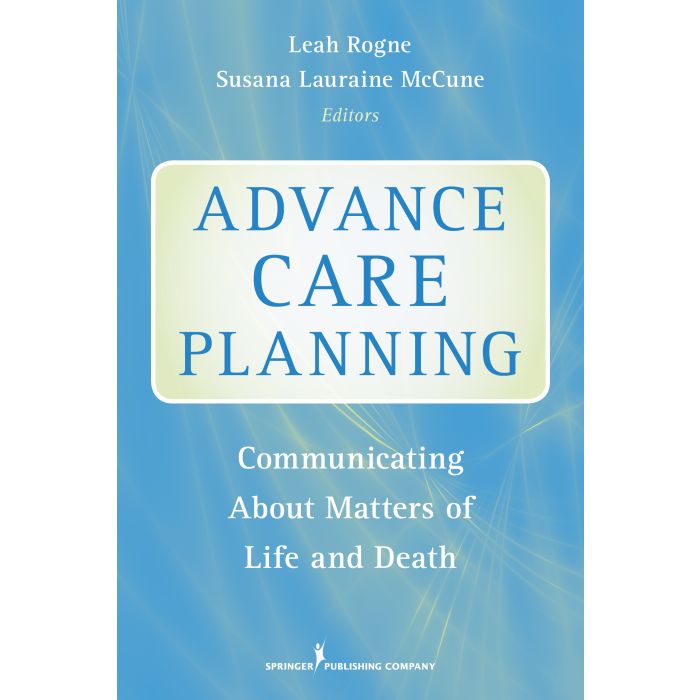

"Advance Care Planning is a rich, insightful book of interest to a broad range or disciplines. It raises questions about why, in spite of so much knowledge and effort, we have not progressed in more effective and extensive use of ACP."--OMEGA: Journal of Death and Dying
This is a very substantive book that encompasses the various aspects of advance care planning, both prior to and after a diagnosis of a life-limiting disease. The realistic case studies help readers understand the complexities of decision-making by the individual and the family."--Doody's Medical Reviews
While advance directives hold a great deal of promise for ensuring self-determination and quality of life near its end, the majority of Americans face life-threatening illness without having completed effective advance care planning.. This volume recounts the history of advance directives, chronicling the evolution of an approach that initially focused on completing forms, to one that now emphasizes more comprehensive strategies for facilitating conversations about end-of-life care and planning for dying and death. It provides helpful strategies for initiating and guiding discussions among providers, patients, and their loved ones, easing the burdens of uncertainty, and improving the efficacy of surrogate decision making near the end of life.
Scholars and practitioners from a variety of disciplines provide a well-rounded view of the history and challenges of advance directives. Authors include palliative care physicians, nurses, social workers, grief counselors, educators, lawyers, psychologists, sociologists, and medical ethicists. The book shares successful strategies on how effective advance care planning can provide smoother transitions at the end of life and ensure better quality of living before death. It incorporates effective multidisciplinary, relationship-based models of advance care planning along with multidisciplinary perspectives to help caregiving professionals initiate conversations and disseminate relevant information to patients and their loved ones and advocates. Case studies illustrate the importance of, challenges with, and prospects for advance directives and advance care planning. The book addresses common barriers to advance care planning and offers ways to overcome them, as well as detailing public health, legal, and comprehensive community planning approaches to change how our current American society deals with dying, death, and end-of-life care.
Key Features:
Foreword PART I: THE PROMISE OF ADVANCE DIRECTIVES: WHERE ARE WE AND HOW DID WE GET HERE? Chapter 1: History and Overview of Advance Directives Chapter 2: Barriers to Effective Advance Care Planning: A Sociological Perspective Chapter 3: Advance Care Planning: Focus on Communication and Care Planning Rather Than on Building the Perfect Form Chapter 4: Advance Medical Care Planning: The Legal Environment Chapter 5: Advance Care Planning: Considerations for Practice with Older Adults Chapter 6: Advance Care Planning and the Problem of Overtreatment Chapter 7: Facing Challenges, Inspiring Improvement, and Leading Change in End of Life Care PART II: COMMUNICATION AS CORE: COMMUNICATION AS A SOLUTION Chapter 8: Worlds of Connection: Applying an Interdisciplinary Relational Model to Advance Care© To Communicating About End of Life Chapter 9: Values, Beliefs and Perspectives in Communicating about Advance Care Planning Chapter 10: Advance Directives and Patient-Family Decision Making, and the Conversations that Matter: Stories and Mobiles Chapter 11: It Ain’t Easy: Making Life and Death Decisions Before the Crisis Chapter 12: Watch Over Me©: Therapeutic Conversations in Advanced Dementia Chapter 13: Advance Care Planning and Nursing Home Residents and Families: Lessons Inspired by TV Game Shows PART IV: CHARTING A NEW PATH: Successful Initiatives and New Directions Chapter 14: Respecting Choices®: An Evidence-based Advance Care Planning Program with Proven Success and Replication Chapter 15: It’s a Conversation Chapter 16: Take Charge Partnership “Just Talk(s) About It” A Model for Sustained, Grassroots Activism Chapter 17: Passion, Persistence, and Pennies Chapter 18: Advance Care Directives as a Public Health Issue Chapter 19: Does the Nation’s Survival Depend on a New End-of-Life Conversation? Appendix: Resources
Leah Rogne, PhD, is Professor of Sociology at Minnesota State University, Mankato. Susana McCune, MA, CT, is a Certified Thanatologist, Behavioral Therapist, and a doctoral candidate in clinical psychology at Antioch University, Seattle.
